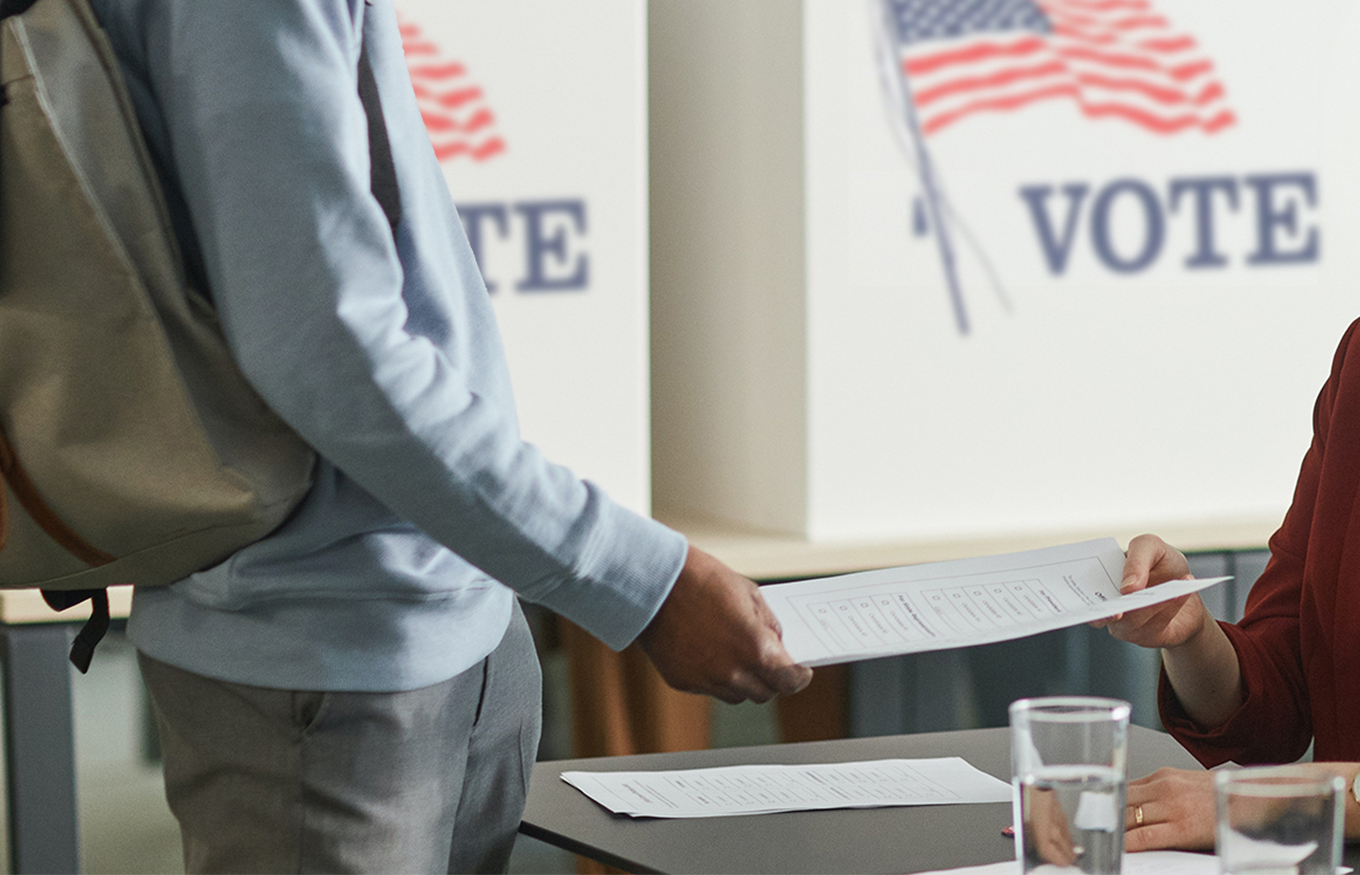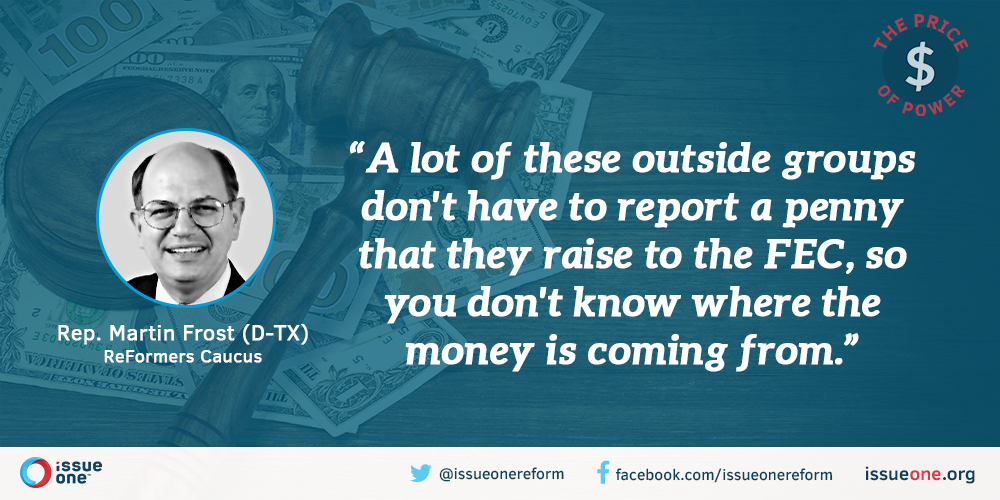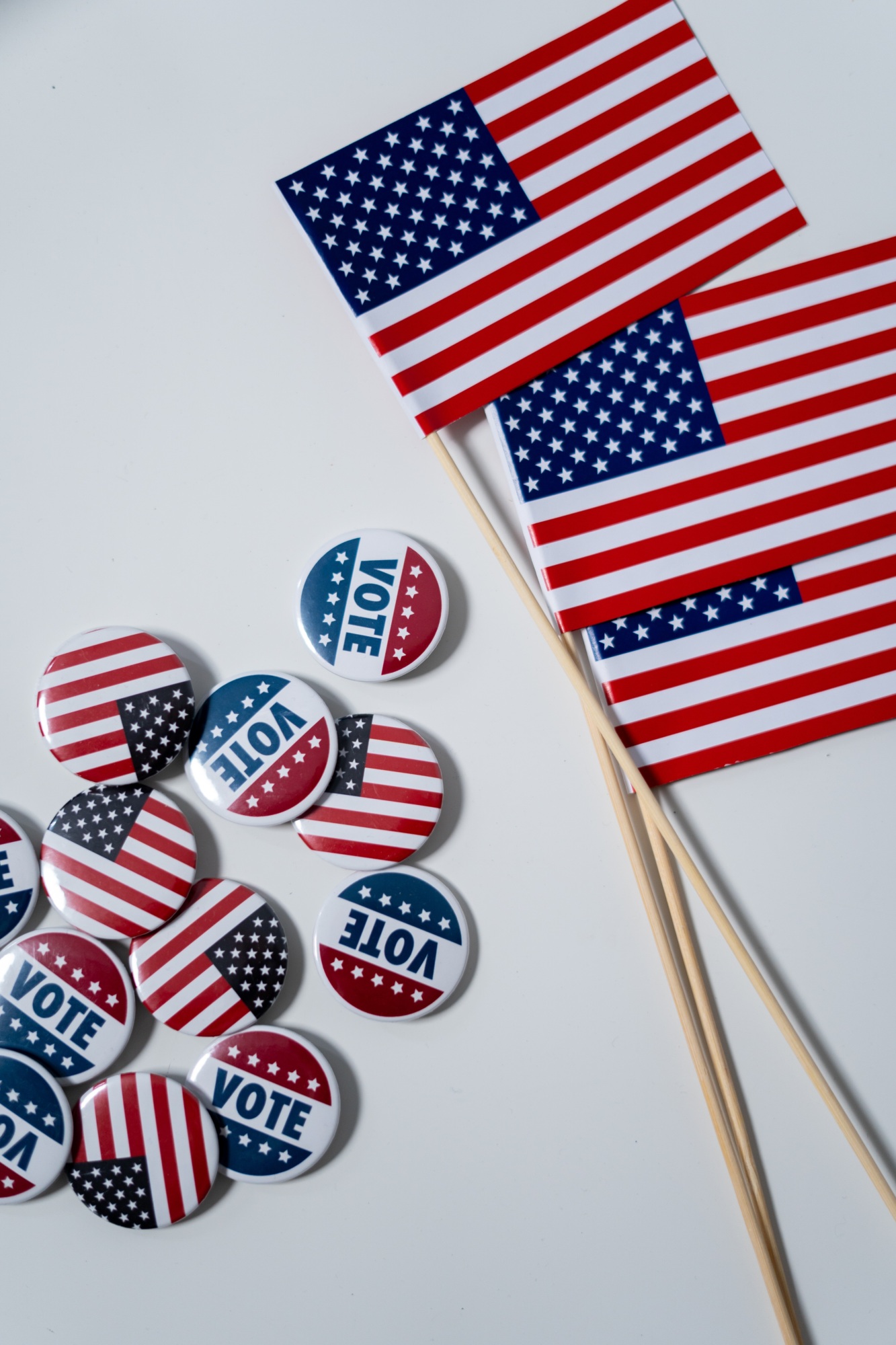To help inform Issue One’s landmark report, “The Price of Power,” we interviewed several members of our bipartisan ReFormers Caucus at-length about their experiences with fundraising and concerns with the “committee tax” imposed on lawmakers.
Every Tuesday and Thursday over the next few weeks, we will release edited excerpts of those conversations with these former lawmakers to supplement and expand on the disturbing picture the report painted: that of a broken democracy, which Congress itself must act to fix.
***
Martin Frost, a member of Issue One’s ReFormers Caucus, is a Democrat who represented Texas’ 24th Congressional District in the U.S. House of Representatives from January 1979 until January 2005. Frost also served as the chairman of the Democratic Congressional Campaign Committee ahead of the 1996 and 1998 elections.
What was your experience with the role of fundraising and committee assignments?
The problem is that campaigns have gotten so expensive these days. The parties now have to raise substantial amounts, so they’ve tried to collect significant dues from all their members. When I became chairman of the Democratic Congressional Campaign Committee in January of 1995, we had a dues system that had been set up, but it wasn’t very substantial. Everybody was supposed to pay a certain amount, but not everybody did.
What portion of House Democrats would you estimate paid their dues back then?
Probably more than half the Congress paid their dues. I would publish a list from time to time and hand it out at the caucus meetings and show who’d paid and who hadn’t. But we still had some people who didn’t pay. It was not the way that it has evolved now.
What do you mean by that?
In my recollection, we didn’t have variable amounts. We didn’t expect people to pay more if they were on certain committees or if they were chair. Nancy Pelosi, as minority leader, has really put the hammer down on people and told them they have to pay a certain amount if they’re a ranking member or a certain amount if they’re on a key committee. And she’s done a pretty good job of collecting it.
When was the party dues system created by Democrats?
The dues structure was set up when Tony Coelho was chairman of the Democratic Congressional Campaign Committee in the 1980s. But it was at a relatively low amount then.
How has the U.S. Supreme Court’s Citizens United decision changed things?
You have these outside, third-party groups now that spend so much money on campaigns. Members of Congress have to be able to protect themselves. So you have to raise a lot of money. And a lot of these outside groups don’t have to report a penny that they raise to the FEC, so you don’t know where the money is coming from.
Why are the chairmen of certain committees required to raise more money for the party?
Those are influential committees. Presumably, you’re in a better position to raise money if you’re on one of those committees. Was it Willie Sutton who was asked, ‘Why do you rob banks?’ And he said, ‘That’s where the money is.’ That’s where the money is. Those are the people who have the best chance of raising money.
Why is that?
Because they’re influential, powerful committees that process major pieces of legislation. The people who serve on Ways and Means and the people who serve on Energy and Commerce handle a lot of very important legislation.
And why does the party expect the members of Congress serving on important committees to be raising more?
Their committee membership was given to them by the Caucus. Because they’ve been given key committee assignments, they have been asked to raise money for the party. You may not like that system. You may think it’s unfair. But the party made the decision that that is the way they could raise enough money to offset, or to partially offset, all this money being spent by all these shadowy outside groups.
Do you think that’s fair?
I don’t know if I would have picked those particular figures. But I would have asked people who are full committee chairs and people who are on very important committees to raise more than the average member. Absolutely.
What would say to members of Congress who have complained about this system?
I would say: ‘You have an obligation to your party. You are now on a very important committee, and we expect you to help us assist the other candidates of the party.’
And since Democrats are in the minority, I would add: ‘If you ever want to get back into the majority, you have to help us raise enough money so we can get back in the majority. If you don’t do that, you’re never going to become a committee chair. The only people who are committee chairs are people from the majority party.’
Was publicizing that party dues list an effective tactic for getting members to contribute?
To be clear: We didn’t put it in the paper; we handed it out at a meeting of the Caucus. But I think it’s important for the membership to know which of their colleagues were helping and which of them weren’t. Then they might say something to their colleagues, ‘Well, I paid my dues. Why don’t you pay your dues?’
Some people are worried about special interests coming in and trying to buy access to lawmakers. Other people say that the leaders of committees are in a position to extort the people they regulate. What is your take on that dynamic?
It’s not extorting anybody. You get to know people who have matters before your committee. Sometimes you’ll agree with them, and sometimes you won’t. If you don’t agree with their positions, you’re not going to ask them for any money. If you do agree with their positions, then there’s nothing wrong with asking them to help the campaign committee.
What other alternative fundraising strategies exist for candidates?
In theory, a candidate could raise unlimited amounts of small contributions to counteract these outside groups, these 501(c)(4)s, who are attacking them. But it’s very difficult to raise large sums in small contributions unless you are running for president or running for the Senate. It takes unusual circumstances.
Can you say more about that?
If you’re a House member, nobody’s ever heard of you outside of your own district or maybe outside of your own state, so it is very difficult to raise large amounts in small contributions. If you’re running for president or if you’re a high-profile Senate candidate like Elizabeth Warren, you can raise large amounts in small contributions. But the average House member can’t do that.
Former Rep. Martin Frost (D-TX) is a member of Issue One’s ReFormers Caucus, the largest bipartisan coalition ever assembled on behalf of political reform and government ethics. Read more about “The Price of Power” here.






